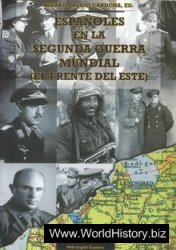Anticommunists: Conservative nationalists opposed to both the royalists and the communists. Together with the royalists and the Khmer Rouge, they fought a guerrilla war against the Vietnamese and the Vietnamese-backed leftists from 1979 to 1991. They ceased to be a major faction after the creation of a coalition royalist-leftist government in 1993.
Khmer Rouge: Communists and extreme nationalists who governed Cambodia from 1975 to 1979. After the Vietnamese takeover, they fought the Vietnamese-backed government until 1991. From 1993 until 1997, they fought against the coalition government. By 1997, they were beginning to turn against one another.
Royalists: Supporters of Norodom Sihanouk and his family. Prince Norodom Ranariddh led the royalist faction in the coalition government as first prime minister from 1993 to 1997.
Vietnamese-backed Leftists: Former members of the Khmer Rouge who became allies of the Vietnamese during the Khmer Rouge regime. Second prime minister Hun Sen, who governed with Norodom Ranariddh from 1993 to 1997 and then seized power from Ranariddh, was a leader of this faction.
In 1989 Vietnam began withdrawing its troops. This motivated the government of the People's Republic of Kampuchea, which came under the control of Prime Minister Hun Sen, to come to terms with the resistance fighters. During the summer of 1991 all four factions agreed to a peace plan brokered by the United Nations, under which the United Nations would establish a transitional authority to prepare for elections.
Although the Khmer Rouge was militarily powerful, it continued to be unpopular among civilians. When Khmer Rouge leader Khieu Samphan returned to Phnom Penh in 1991, he was nearly lynched by an angry crowd. It was doubtful, therefore, that the Khmer Rouge would do well in fair elections. When elections were actually held in 1993 under the supervision of the United Nations, the Khmer Rouge boycotted the proceedings and threatened violence.
Norodom Sihanouk was appointed head of state, once again taking the title of king. Sihanouk's son, Norodom Ranariddh, was the top vote getter, becoming first prime minister. Hun Sen actually lost the election, but he was established as second prime minister in order to keep his faction in the coalition. The Khmer Rouge resumed guerrilla warfare against the new government.
For a time the Khmer Rouge appeared to be a genuine threat. In April, 1996, however, government troops launched an attack on the main Khmer Rouge base at the town of Phnom Veng and there were reports of splits within the leadership of the Khmer Rouge. Ieng Sary, one of the most powerful men in the radical guerrilla group, split with Pol Pot and applied to the Cambodian government for amnesty, which was granted by Sihanouk in September, 1996.
Throughout 1997 the remaining Khmer Rouge leaders turned against one another. After Pol Pot ordered the murder of his own defense minister along with the minister's entire family in June, Pol Pot himself was taken prisoner by the notorious Khmer Rouge general Ta Mok, nicknamed "the butcher." In April, 1998, while in captivity, Pol Pot died, reportedly of a heart attack.
The splintering of the Khmer Rouge triggered a split between Hun Sen and Prince Ranariddh, who were competing for the loyalty of the defectors. Although Ranariddh was far more popular and would probably win any reasonably fair election, Hun Sen controlled more troops. During the summer of 1997 heavy fighting broke out in Phnom Penh between troops loyal to the two prime ministers. In July, a day after Ranariddh left the country for a visit to Paris, Hun Sen seized sole power and declared Ranariddh a traitor for having sought support among the Khmer Rouge forces.
Fighting between forces loyal to Ranariddh and Hun Sen's government troops continued, and the ongoing conflict in Cambodia appeared to be between the supporters of the royal family, who enjoyed popular support, and the former pro-Vietnamese leftists led by Hun Sen, who held most of the military power.




 World History
World History









